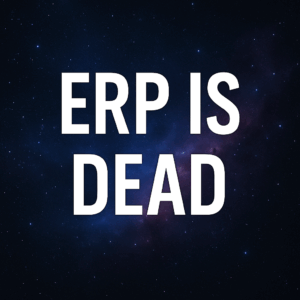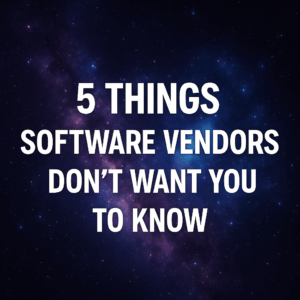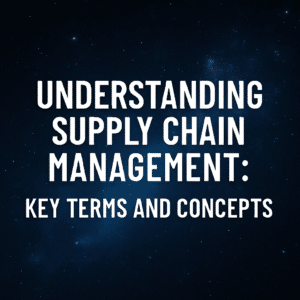As AC/DC once said: “come on, come on, listen to the money talk.” Nowhere is this truer than in the digital transformation space.
Money drives so much of what does or doesn’t happen in our industry. Unfortunately, this doesn’t always align with the long-term interests of those most impacted by technology: the companies using it. This is something I understand from my own experience as a recovering Big 5 SAP consultant.
Every day we hear about buzzwords, alleged trends, and “must-dos” for companies thinking about technology. Sometimes these trends stick, while in other cases the trends last about as long as Betamax lasted in the ‘80s. These biases are a key reason why digital transformation failures are increasing in recent years.
This is all okay as long as you understand how money is driving bias in the industry and as long as you take it with a grain of salt. Here are some of the ways that economic incentives drive bias in the industry.
Table of Contents
ToggleWhich software you choose
The most obvious bias is in the software selection process. If you contact an SAP system integrator, they will most likely recommend SAP. If you contact a Microsoft Dynamics 365 system integrator, then D365 will be the likely recommendation for the exact same situation. There are very few truly independent ERP consultants in the space, so be sure you understand any preconceived biases that may exist in your ERP selection process.
Recommended deployment models
I recently wrote about how cloud ERP has reached the tipping point of adoption, but this adoption rate is based on money – not necessarily necessity. Investors love the cloud because margins and steady revenues are higher. Vendors love it because the investors like it. And industry analysts – most of whom are paid by the vendors – not coincidentally love the cloud too. Cloud and on premise are both alive and well, so be sure to choose the deployment model that makes the most sense for you.
ERP industry analyst findings and recommendations
Industry analysts are largely subsidized by software vendors, which means there is a certain amount of bias in the work they publish. When a vendor commissions a study of the “best” solutions for industry X or functional area Y, chances are that the vendor is going to fare pretty well in that study. The pay-to-play model has a certain amount of value that many prescribe to, but it is important to recognize the inherent biases as well.
System integrator recommendations and proposals
System integrators are biases in their own way as well. In some cases, they receive commission on software that they help sell. In most cases, they also have an incentive to keep their bench of SAP, Oracle, or Microsoft consultants busy – which means that they are likely going to recommend a solution that does just that. So, whether you are working with Deloitte, Accenture, Capgemini, or another system integrator, be sure to take their recommendations with a grain of salt.
Forced upgrades to new technologies
It’s been decades since we have seen such a widespread “necessity” for companies to begin thinking about migrating to new technologies all at once. In Y2K, there was a legitimate mandate for companies to replace their dated legacy systems. In 2019, vendors have manufactured this mandate by putting a timeline in place to sunset legacy products. So if you’re using SAP ECC, Oracle EBS, Microsoft Dynamics, or another legacy ERP product, you are probably being told that it’s time to switch.
Transformation timelines
Biases don’t end once you have selected your new technology. It also continues into the implementation process itself. System integrators and other consultants are incentivized to suggest accelerated (yet often times unrealistic) timelines to quickly realize revenue and maintenance or subscription fees. This accelerated timeline may or may not be in your best interests, so it is important to objectively define what works best for you to avoid being “Accentured” by large system integrators.
How to remove bias in your digital transformation process
The first step to removing bias is to recognize and acknowledge that it exists. From there, you have a few other antidotes at your disposal. For example, you may opt to choose an independent and fully unbiased consulting partner such as Third Stage to help guide your decisions, planning, readiness, and management of your system integrator. This sort of insurance policy can save millions of dollars in the long-term.
Feel free to contact me to discuss your project and how you might remove bias in your digital transformation. I am happy to be a sounding board as you continue your journey!





